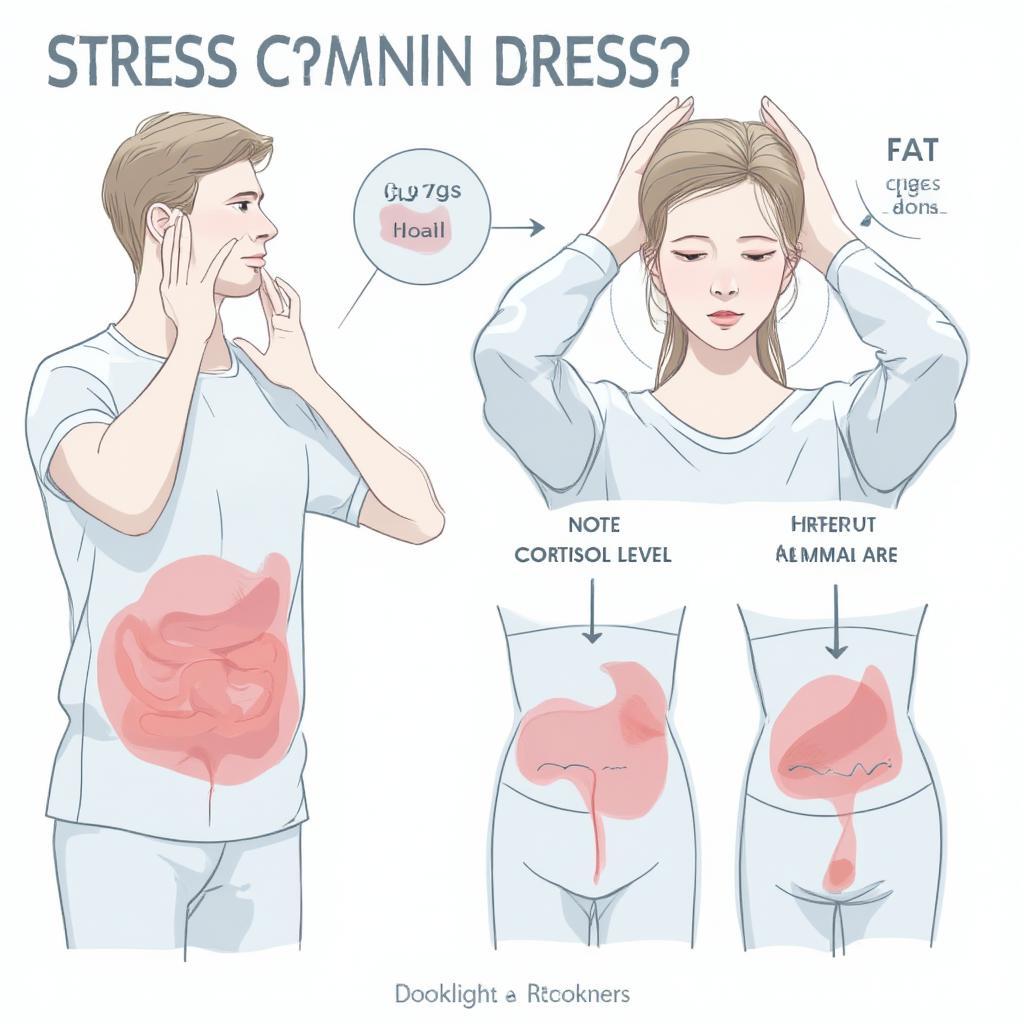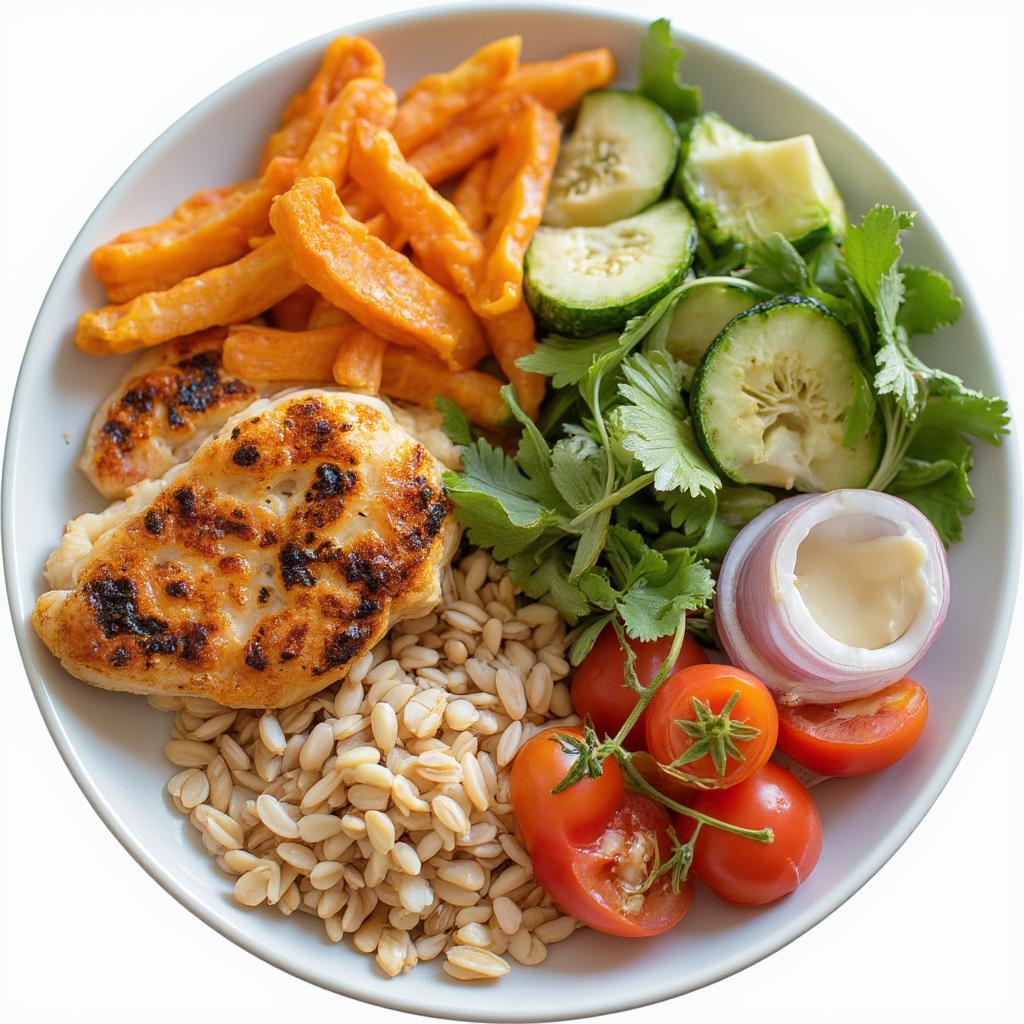Not Losing Weight Intermittent Fasting 16 8: Common Reasons & How to Fix It

Intermittent fasting, particularly the 16/8 method, has gained immense popularity as a weight-loss strategy. However, many find themselves frustrated when the pounds don’t seem to budge despite adhering to the fasting schedule. If you’re experiencing this, you’re not alone. Let’s explore the common culprits behind this plateau and, more importantly, how to get back on track toward your weight-loss goals.
Why Am I Not Losing Weight with 16/8 Intermittent Fasting?
It’s disheartening to stick to a routine and not see results. The 16/8 intermittent fasting approach isn’t a magic bullet, and its success often hinges on more than just the timing of your meals. If you’re wondering, “Why isn’t intermittent fasting working for me?”, there are several key factors to consider.
Calorie Intake: The Unsung Hero
One of the most common reasons people don’t lose weight on intermittent fasting is that they may be overeating during their feeding window. It’s easy to assume you can eat whatever you want once your fasting period is over, but weight loss, even with intermittent fasting, still relies on a calorie deficit. You might be eating too much, especially if you are choosing foods that are high in calories and low in nutrients. It’s always a good idea to track your intake, at least for a short period to see how well you are really eating and if you are over or under your needs. The most important thing is to stay realistic. If you’re consuming more calories than you burn, weight loss will be difficult, even with intermittent fasting.
The Types of Food You Eat Matters
While calorie counting is key, the kind of food you eat is just as important. Focusing solely on calorie intake while neglecting the quality of your diet can hinder your weight-loss efforts. A diet packed with processed foods, sugary drinks, and unhealthy fats can sabotage even the most rigorous intermittent fasting regimen. You need to ensure you are eating a balanced diet with plenty of whole foods. These include fruits, vegetables, lean proteins, and whole grains. Choosing high-fiber, nutrient-dense meals can help you feel full for longer, curb cravings, and make your intermittent fasting period feel much more manageable, and contribute to greater weight loss overall. For the best way to reduce body fat it should be a combination of diet and exercise.
Not Enough Water
Dehydration can easily be confused with hunger. Before grabbing a snack or a meal, try having a large glass of water and waiting 15-20 minutes. You might just have been thirsty, not hungry, and this small change can have a big impact. Staying hydrated is also crucial for overall health and can assist in weight loss by helping to regulate digestion and metabolism. It’s recommended to drink water throughout the day, not just during your feeding window.
“Maintaining proper hydration is often overlooked, but it’s a fundamental aspect of any successful weight-loss plan. Water helps to keep you feeling full, and it optimizes digestion and metabolic function” states Dr. Emily Carter, a registered dietitian and expert in weight management.
The Stress Factor and Hormonal Imbalances
Stress can wreak havoc on your body, not to mention your weight loss attempts. When you’re stressed, your body produces cortisol, a hormone that can actually encourage fat storage, particularly around your abdomen. Therefore, if you’re under a lot of stress, intermittent fasting alone might not yield the results you’re hoping for. Similarly, hormonal imbalances can also affect your ability to lose weight. Conditions like hypothyroidism, polycystic ovary syndrome (PCOS), or imbalances in sex hormones can influence your metabolism and make it harder to lose weight. If you suspect hormonal issues, it’s essential to consult a doctor for diagnosis and management. For anyone with PCOS looking for support, exploring exercises to reduce pcos belly fat may be beneficial.

Sleep Deprivation
Sleep is essential for overall health and has an important role to play in weight loss. Skimping on sleep can disrupt your hormones, making it harder to control cravings and lose weight. When you don’t get enough sleep, your body tends to crave high-calorie, unhealthy foods. Poor sleep can also impact your metabolism and lead to increased fat storage. Aim for 7-9 hours of quality sleep every night to optimize your body’s ability to shed extra pounds.
Lack of Exercise
Intermittent fasting works better when combined with regular physical activity. While fasting can help reduce calorie intake, exercise helps boost your metabolism and burn extra calories. Even moderate physical activity like walking, swimming, or cycling can be beneficial. Combining fasting with at least 30 minutes of exercise most days of the week can significantly enhance your weight loss. For those over 50, finding the best exercise to lose weight over 50 can make all the difference.
Impatience and Expectations
Sometimes, the issue isn’t with the intermittent fasting itself, but rather with unrealistic expectations. Weight loss is rarely a linear process; it’s normal to experience plateaus, and everyone’s body responds differently. If you’re expecting drastic results in a week or two, you may be setting yourself up for disappointment. If you are expecting your body to react instantly to the intermittent fasting, you may be setting yourself up for failure. If you find you are not seeing any weight loss, a quick fix may not be the answer. Remember that consistency is key, and it’s essential to give your body time to adjust. Be patient with yourself and keep in mind the long-term goal.
How to Fix Your Weight Loss Plateau with Intermittent Fasting
If you’ve identified some areas where you might be falling short with your 16/8 intermittent fasting routine, it’s time to make some adjustments. Here are some actionable steps you can take to get back on track:
-
Reassess Your Calorie Intake: Start tracking your calories for a few days to see if you’re truly in a calorie deficit. Use a food diary or a tracking app to log everything you eat. Once you understand how many calories you’re actually consuming, you can make the necessary adjustments.
-
Prioritize Whole Foods: Focus on filling your plate with nutrient-rich whole foods like vegetables, fruits, lean proteins, and whole grains. Cut back on processed foods, sugary snacks, and unhealthy fats. Make sure you are eating a rainbow of fruits and vegetables daily.
-
Hydrate Consistently: Make sure you are drinking enough water. Carry a water bottle with you and sip on it throughout the day. Try keeping a jug on your desk at work, or in your car so you are sure you are drinking. Aim for at least 8 glasses of water a day, and even more if you are exercising.
-
Manage Stress Effectively: Incorporate stress-reducing activities into your routine, such as meditation, yoga, or spending time in nature. Sometimes, just taking some slow deep breaths can make all the difference. Listen to music, read a book, or spend time with friends.
-
Improve Sleep Hygiene: Aim for 7-9 hours of quality sleep each night. Establish a consistent sleep schedule, create a relaxing bedtime routine, and make sure your bedroom is dark, quiet, and cool. It is often the things we do before bed that can make the biggest difference.
-
Incorporate Regular Exercise: Find a form of exercise you enjoy and make it a regular part of your routine. Aim for at least 30 minutes of moderate exercise most days of the week. Combine cardio with strength training for the best results. Remember that you don’t need to feel like you are about to collapse to know you have been working out hard. Consistent exercise is more important than going all out once a week.
-
Be Patient and Consistent: Give yourself time to adjust to your intermittent fasting routine and be consistent with your efforts. Don’t get discouraged if you don’t see results right away. Remember that weight loss is a journey, not a race.
-
Consider Professional Guidance: If you’re struggling to lose weight despite making these changes, consider consulting a healthcare professional or a registered dietitian. They can help identify any underlying issues and create a personalized plan that is tailored to your specific needs and goals.
Is 16/8 Intermittent Fasting Right for You?
While intermittent fasting can be a powerful tool for weight loss, it’s not for everyone. If you have a history of disordered eating, are pregnant or breastfeeding, or have certain medical conditions, it might not be the right fit for you. It is always recommended to talk to a healthcare provider before starting any new diet or exercise regime. For women who are breastfeeding, there are plenty of healthy breastfeeding diet to lose weight options to consider.
“It’s crucial to listen to your body and choose a dietary approach that aligns with your lifestyle, preferences, and health needs. Intermittent fasting isn’t a one-size-fits-all solution, and what works for one person might not work for another”, comments Dr. Mark Thompson, a weight loss specialist.
Conclusion
Not losing weight while doing the 16/8 intermittent fasting method can be frustrating, but it’s often a sign that you need to fine-tune your approach. By examining your calorie intake, food choices, hydration, stress levels, sleep quality, and exercise habits, you can identify what’s holding you back and make the necessary adjustments. Remember, weight loss is a journey, and it’s essential to be patient, consistent, and kind to yourself throughout the process. If you are still finding it difficult, there are always other options to consider such as detox to lose belly fat in a week. Intermittent fasting isn’t a miracle but rather a tool that, when used correctly, can help you achieve your weight-loss goals. Understanding why not losing weight intermittent fasting 16 8 might be happening for you, will put you in a better place for success.
FAQ About 16/8 Intermittent Fasting and Weight Loss
Here are some frequently asked questions about intermittent fasting and weight loss to further help you:
Q: Can I drink coffee or tea during my fasting window?
A: Yes, you can typically drink black coffee, tea, and other calorie-free beverages during your fasting window. However, avoid adding sugar, cream, or milk, as these can break your fast.
Q: How long does it take to see weight loss results with intermittent fasting?
A: The time it takes to see results varies from person to person. Some people may start seeing results within a few weeks, while others may take longer. Consistency is key, and it is important to be patient. It’s also important to remember that there will always be fluctuations.
Q: Do I need to track my macros while intermittent fasting?
A: While not essential, tracking your macros can help you ensure you are eating the right balance of protein, carbohydrates, and fats, which can be beneficial for weight loss and overall health. This can be more important for some people than others.
Q: Can I exercise while fasting?
A: Yes, you can absolutely exercise while fasting. Many people find that exercising during their fasted state can actually enhance fat burning. It’s important to listen to your body and start slowly, ensuring you have enough energy.
Q: Is intermittent fasting safe for everyone?
A: While generally safe for most people, intermittent fasting is not for everyone. If you have a history of disordered eating, are pregnant or breastfeeding, or have certain medical conditions, it’s best to consult a healthcare professional before starting any new dietary regimen.
Q: What if I feel extremely hungry during my fasting window?
A: If you’re feeling excessively hungry, it might be a sign that your body is still adapting to the fasting routine. Ensure you’re well hydrated and consider adjusting your meal timing. If the problem persists it’s always best to consult a professional.
Q: Can I do intermittent fasting long term?
A: Intermittent fasting can be a sustainable dietary approach for the long term if it aligns with your lifestyle and personal preferences. It’s essential to focus on healthy eating and make sure you’re meeting all your nutritional needs.




